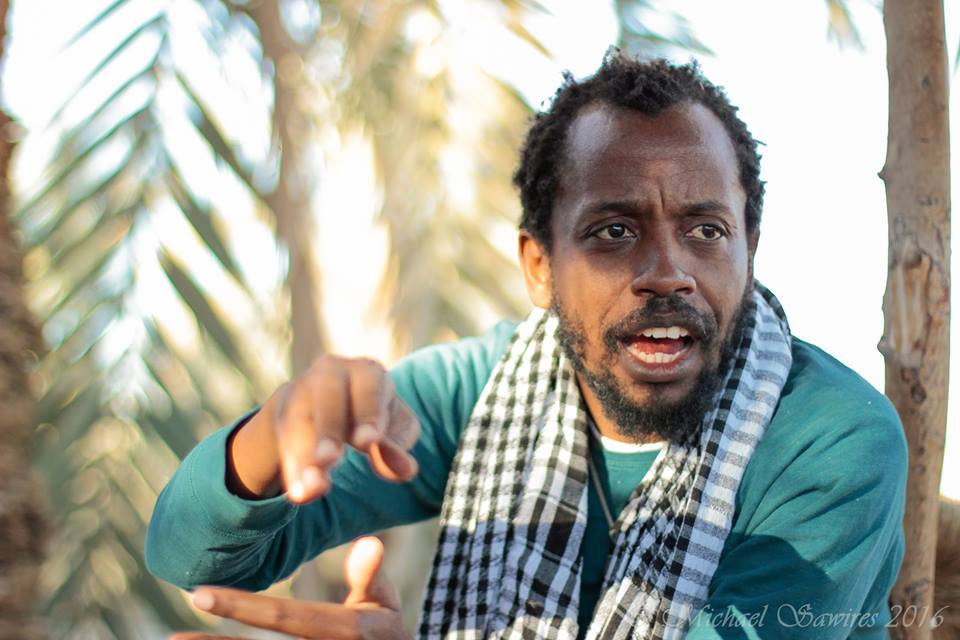
We sat down with Jo M. Sekimonyo, author of “Ethosism: Self-Enslavement Abolitionist Manifesto.” Jo is a Congolese-born, American-fermented, and globally bottled Merchant of Ideas. Much of his writing has concerned economic justice, poverty, and egalitarianism. Sekimonyo argues that the ability of individuals to understand the world and creatively respond to challenges that confront humanity is key to alleviating poverty. He facilitates several workshops and seminars throughout the developing world every year geared towards stimulating debates around global social issues and mainstream economic theories.
Sekimonyo’s unique perspective on alleviating poverty makes him an invaluable resource for businesses to expand their operations into developing countries. Sekimonyo provides businesses with insights into the challenges and opportunities they can expect to encounter in these markets through his workshops and seminars. Additionally, he provides participants with a better understanding of local cultures and how to respectfully interact with the people of those cultures.

Jo, thank you so much for joining us today. It’s great to have you. At the start of your book is a riveting divorce letter to capitalism. What is the message you are sending to the reader?
Thank you for having me! I wrapped the sentiments surrounding the flaws of capitalism into a familiar narrative of a letter while pointing out the perverted excuse for inaction. The distinction between “profit” and “surplus” has become fuzzy, and the environmental impact of wealth accumulation has been sorely neglected until recently. This is only possible by complicity or complacency amongst the poor population, conditioned by free-market tropes.
Very fascinating! What do you attribute conservatives and moderate-leaning voices to the continued calls for saving capitalism?
Accumulation of wealth is portrayed by society as virtuous and even a duty. Moneyers are portrayed as drivers and guardians of economic growth. As cognitive manipulation has made socio-economic injustice an acceptable way of life, the gap between rich and poor is accepted as mandatory and true.
Certainly a great point, but is capitalism really all that bad?
Capitalism is nowadays portrayed as the best opportunity for equality. To be blunt, it is a romanticized form of slavery, which the population has accepted and embraced, with their desire for cheap prices and continuous turnover of goods. As we have shoppers rather than consumers, our mindset has made it easier to be tricked that our wants are our needs.
I see that is a good point, in fact. So, is your book calling for the resurgence of another form of socialism or communism by another name?
I am equally critical of socialism. Attempts by socialists to improve the conditions of the poor have had the opposite effect, reproducing their subservient position. Socialism simply embeds the capitalist attitude in the minds of the poor and socially enslaved. The exploration in this book also takes on the religious ideology, historically at the labor inequality’s center; the theist justification of inhumanity, which alleged blasphemy or treason as reasons for its opposition. Similarities between modern Western and Islamic economic models are drawn.

You’ve really gone in-depth with the exploration, which readers can appreciate. Capital is still defined as the part of wealth which was devoted to obtaining further wealth, as Alfred Marshall stated. Is it still the case in the 21st century?
Not at all. Today, capital is that means which is devoted to obtaining more means through interaction with others. To say it differently, capital is the means of participation, engagement, or involvement, which are locked into obtaining wealth. Therefore, labor is not the sole source of all surplus; money is not, either.
That is a very intriguing way to put it, and I can definitely appreciate that! Despite recurring global economic crises and widening inequalities made transparent by the COVID-19 pandemic that sparked growing criticism of capitalism, what are the obstacles for the world to imagine a new social and economic arrangement or, shall we say, an alternative to capitalism?
Apprentice experiments of multiplying poverty and crime and then subtracting reality opens the door to advanced research into economics and theology. Hardnosed scientists are mastering the art of vagueness to well serve the maniacs in getting the public to look away from the obvious solutions to their conundrum. Compassion has become a nightmare and a travesty for new age voyeur of other mortals’ suffering or the indigenous upper class’s illusion of everlasting opulence.
Patching up ethical holes, as we have been doing, can no longer last like it used to. The incompatibility is due to the considerable gap between today’s behaviors and the flourishing deviations and rules of recompense installed more than two centuries ago. A paradigm shift does not spontaneously trigger the mindset’s shift in the right direction. The world has yet to stop eavesdropping on capitalist pleasers, lumpen- intellectuals.
There are three critical elements that we have yet to accept. The free-market model is outdated. We ought to reject any temptation to embrace revamped communist or socialist dogmas to preserve humanity’s sanity. And it is a waste of passion and time suggesting something in between capitalism, socialism, and communism. As a consequence, I suggest a third way: “ethosism.”
Beautifully put, and certainly something to think about. Jo, thank you so much for your time today. Where can readers learn more about Ethosism and your work?
My pleasure, and thank you again. Readers can learn more on my website or by checking out the book on Amazon.
New Title from Jo M. Sekimonyo
Ethosism: Self-Enslavement Abolitionist Manifesto

In the global environment of trade and commerce, humankind appears to have given up its natural journey of progression to improve the social order and universally accepted capitalism. But, whilst the richest continue to accumulate vast amounts of wealth, inequality grows, and the poorest still live in extreme poverty. This passionate, academic study will go on to present that socialism is just another means of enslaving society under the capitalist model. So, is there a new social, political, and economic arrangement that fits the twenty-first-century reality? Ethosism looks at the fact that in the twenty-first century, more people than ever before have the means to acquire and own their means of engagement, participation, or involvement in an enterprise. As a result, capitalism, socialism, and communism have lost their raison d’êtres.
By examining the foremost upheavals of the twenty-first century, wealth inequality and climate change, plus social class conflicts resulting from the paradigm shift, my conviction is that we are in dire need of a morales nuvem consensus which will herald new social, commerce, intermerce, and political covenants that will enable us to successfully traverse the twenty-first century and beyond.





